We are pleased to announce Dr. Nahla as our October 2022 Muslim Woman of the Month!
Dr. Nahla is a 30 year-old Syrian Muslim Canadian who is currently completing her second year as a psychiatry resident.
With a combined social media following of over 210,000, Dr. Nahla has used her voice and platform to educate and advocate for others about mental health, domestic abuse, trauma, and more.
She had the unfortunate experience of being in an abusive relationship herself, and rather than letting it continue to impact her negatively, she is now sharing her story and healing journey to positively influence the lives of others.
Her content consists of informative posts and videos where she raises awareness about mental health and abuse, as well as offers tips and advice with the aim of empowering others and helping them heal from their traumas.
She has quickly become an influential figure in the mental health space both on and offline for victims of abuse as well as those struggling with their mental health in general, but especially among the Muslim community, where these issues are still considered relatively taboo to discuss.
In our chat, Dr. Nahla shares all about her experience with abuse, her thoughts on how we can address and destigmatize mental health and abuse in our community, as well as her educated insight and advice on how others can recognize, navigate and heal from abuse.
Read on to hear her story as well as her invaluable insight on domestic violence and mental health!
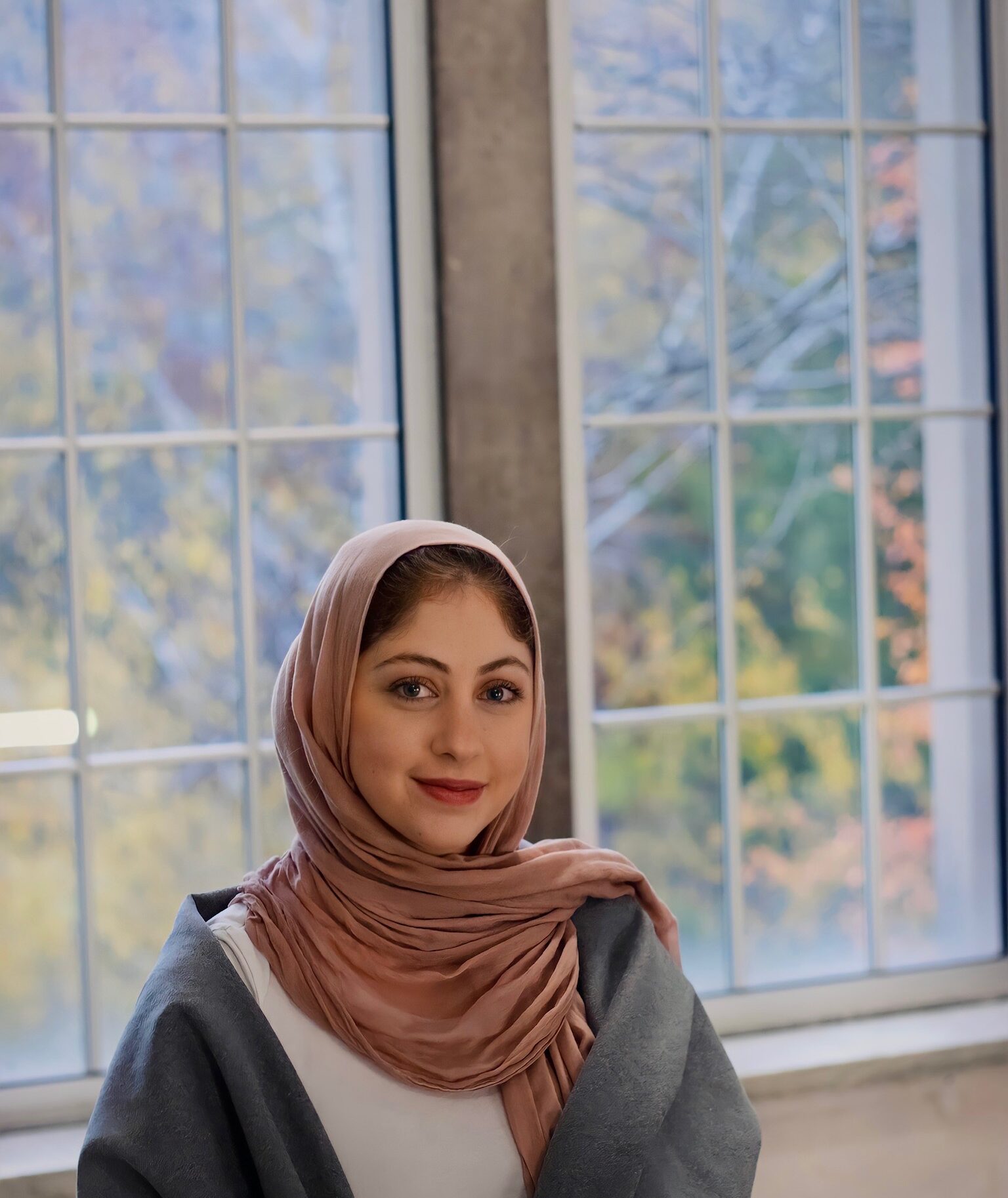
What inspired you to become a psychiatry resident?
That was before I had gone through the abuse itself. When I was in med school, I learned about mental health and, in our training, we have to take mental health courses. Then, we do a psychiatry rotation for a full month (some people do a month and a half).
So in that time, I was exposed to the practice of psychiatry itself, and I thought, “This is so different from what I thought it would be.” I was taken aback at how cool of a specialty it was because there was still quite a bit of stigma. There still is, but the stigma was there.
I found myself enjoying the work every day, but at the time, I wasn’t convinced. I wasn’t sure that’s what I wanted to do. As time went on, I had more exposure to other specialties, and I always found myself thinking about and comparing them to psychiatry.
“There isn’t as big of a presence in the media, but there are a lot of Muslim women that are working as, if not a psychiatrist, as psychotherapists, social workers, counselors, occupational therapists, people that are within the mental health care team, and I find that amazing. I find that empowering.”
I would leave psychiatry and actually want to go and read about stuff. I was excited for my next day at work, and I didn’t want to miss a day; I didn’t want to miss a second; I didn’t want to miss a single patient interaction. I was so fully immersed in it.
I might not have known in the moment, but because of all the other rotations, and realizing how different I was, how different my skillset was, and how different I felt, I thought “I should pursue it and think about it more seriously.”
Then, in my intern year, I did another elective in psychiatry, and that’s when the feedback I kept getting was, “You should really consider this job. It’s something that you are well-suited for.” I ultimately came to the decision to apply for psychiatry after doing another elective. It confirmed for me that I could do this job, and I’m going to go for it.

That’s awesome. I feel like it’s not a traditional career path that many Muslims take because of the stigma. What has that experience been like as a visibly Muslim woman?
Initially, I would say that it didn’t matter to me whether or not there were Muslim women doing the job, or whether or not I was represented. In my mind, I knew that I’m going to be doing this job for another 40 years of my life every single day.
So this isn’t about who my colleagues are going to be or if I’m going to feel represented. I didn’t care. I cared about whether I was going to be happy doing my job every day.
Yes, it’s true that I’m not very well represented in psychiatry, as in visibly Muslim women are not really in the field as much. People were telling me, “You should be a family doctor. You should be a primary health physician because they need women.”
It’s often that women are seeking women care providers, and being a Muslim woman, they’re like, “Imagine all the women that would love to have you as their doctor.” I thought, “Yes, I would fill a need, but I wouldn’t be fulfilling myself, and it wouldn’t be fulfilling as a job.” So I didn’t really consider that.
“…when you do go to places where there isn’t representation of people of color, of people from the Muslim community, or of religious minorities, the patient population suffers because you end up getting people of color going to providers and not feeling seen, understood, cared for, or heard.”
But as I’ve been doing the job and being part of social media in the mental health world, and in the mental health world professionally, I am seeing a lot of Muslim women.
There isn’t as big of a presence in the media, but there are a lot of Muslim women that are working as, if not a psychiatrist, as psychotherapists, social workers, counselors, occupational therapists, people that are within the mental health care team, and I find that amazing. I find that empowering. I’m just like, “This is dope. I love my team. I love working with other Muslim women.”
On the same token, when you do go to places where there isn’t representation of people of color, of people from the Muslim community, or of religious minorities, the patient population suffers because you end up getting people of color going to providers and not feeling seen, understood, cared for, or heard.
I’m hopeful that, with more and more people joining the field, and being able to understand the patient population better, there will be less stigma within our communities, and that our communities will feel safe coming to see us.
They’ll actually want to see a psychiatrist. They’ll feel safe opening up. They’ll feel heard. They won’t feel judged for their culture, background, or what they believe in. They won’t be pathologized and called “crazy” or “insane” for believing in certain religious practices, or doing certain things that are important to them culturally and religiously.
So what it means for me to be in this job is not just for us to be represented and to have a position in the mental health world, it’s for our patients to feel like, “I’m not going to have to defend everything I believe in to my practitioner.” You shouldn’t have to do that. I hope that’s the trajectory that we’re going in.
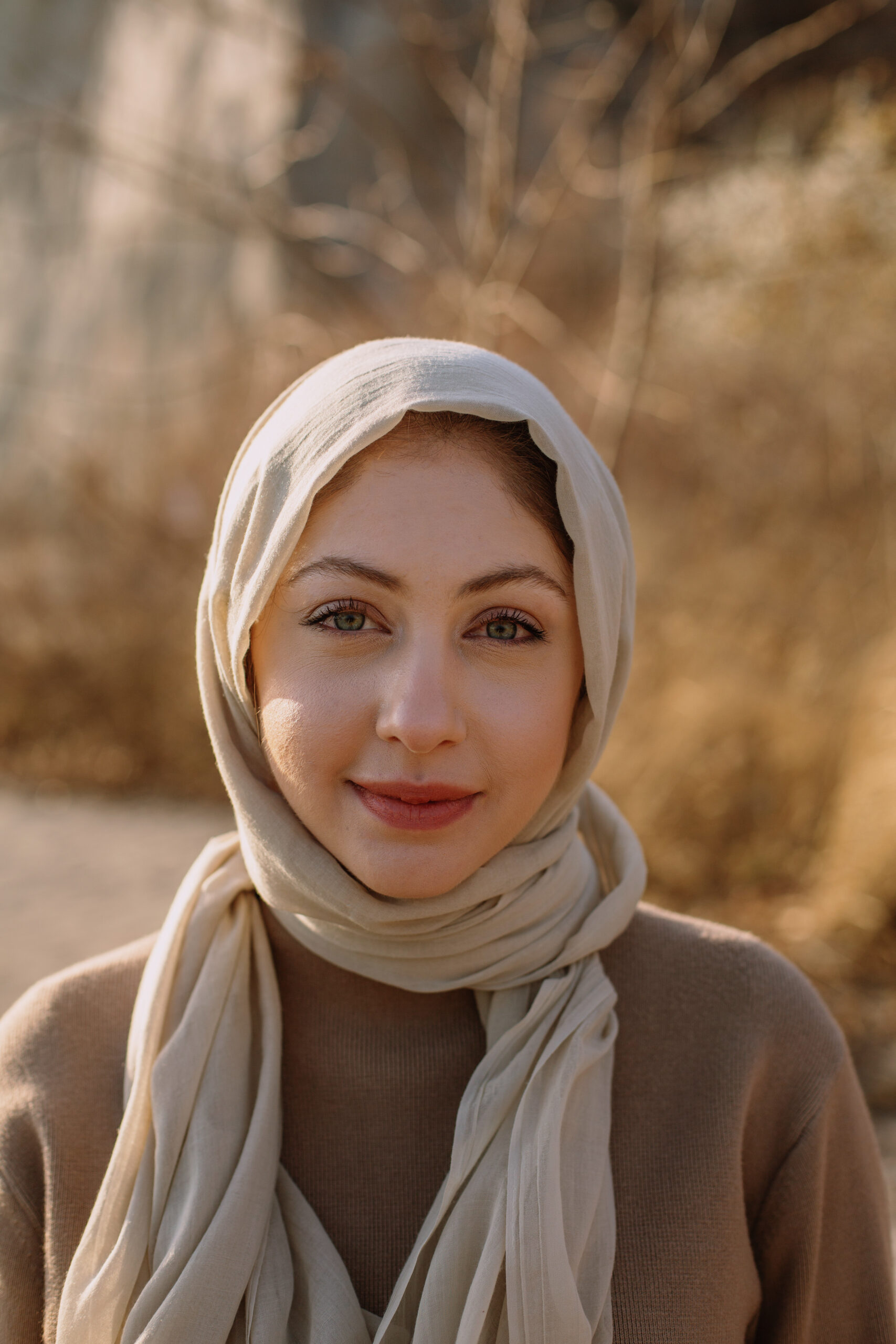
I love that, especially when you said that you offer a different and unique perspective and skill set. That’s very true, as a Muslim, you have a better understanding of the issues in our communities, and it will make you better apt to address them in an appropriate way. We definitely need more of that to overcome the barriers that exist in our community when it comes to Muslims seeking professional help. You have shared about your experience with the aim of helping others, do you mind sharing your story with us?
Yeah, of course. My experience with abuse was in a relationship that was about a year and a half long. It started off beautifully, as all abusive relationships tend to do. It started off very loving and very excessive. It was a lot at once, and quite passionate and emotional.
That died away quickly, but the impact of that initial intense emotion lingered for very long, and that’s when I felt myself becoming devalued in the relationship, and becoming someone that was not cared for, unimportant, and not worthy of a good or healthy relationship.
At the same time, the effects of that initial relationship, the love-bombing aspect of things, lingered, and I always thought that was going to come back. I would always be like, “No, it’s going get better. It’s going to go back to what it was at the beginning, and it will all be fine.”
“I was witnessing myself become so low, and becoming a shell of myself. At a certain point in abuse, you look at the mirror, and you hate what you’re seeing. You really dislike yourself.”
Fast forward 11 months into it, and it became verbally abusive. It became emotionally manipulative and abusive. It became physical, in terms of physical violence in the vicinity around me, punching things in front of me, cocking fists, and yelling out loud. There was always a level of contempt as well, like looking down on me, and making me feel like I was lesser than this person.
But in between all of that, there are always ups and downs in abuse. So, at the same time, I was witnessing myself become so low, and becoming a shell of myself.
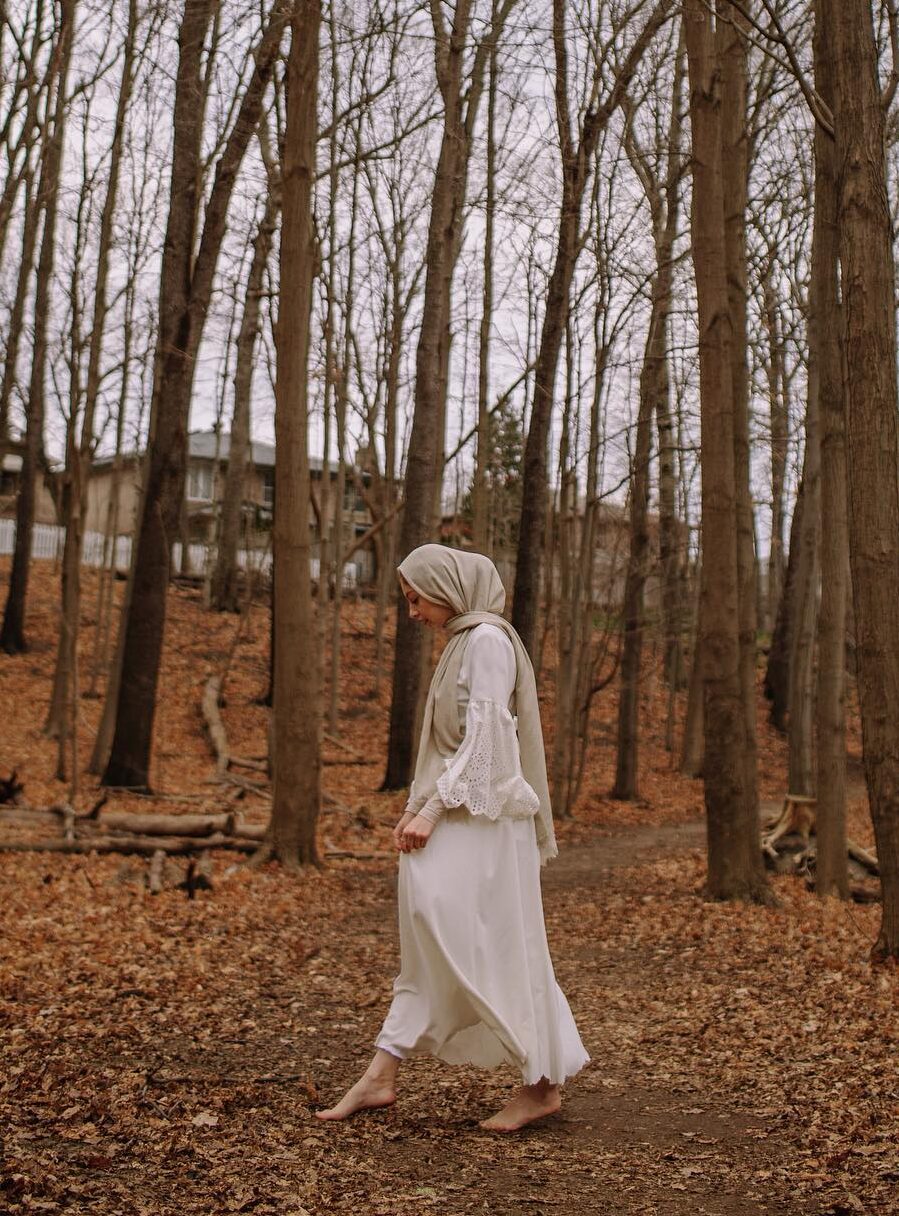
At a certain point in abuse, you look at the mirror, and you hate what you’re seeing. You really dislike yourself. But in all of those low points, there’s always a little bit of bread crumbing where I would be told nice things, be given a gift, or nice gestures that kept me there. There’s always a little bit of bread crumbing that sucks you back in, and what does that become? It becomes a trauma bond.
The ups and downs become very extreme, and essentially, at a certain point, I looked at my life, and I looked at the things around me, and it hit me that Maybe it’s not me because I was told the whole time, “It’s me. I’m the problem. I’m at fault. I’m ruining this relationship, and I’m ruining him.”
When I looked around me at my friends, my job, and what I’ve been able to succeed at in life, I thought, “I’m doing okay, everywhere else, but here. Everywhere else, but this one relationship, I’m fine, and I’m thriving. But in this relationship, I’m so awful. I’m not worthy of anything. I’m such a mistake. I’m such a problem–maybe I need to think about this relationship.”
That’s when I began to set my boundaries and learn a little bit, grow a little bit. Of course, when you set boundaries in an abusive relationship, you get pushback. You get abused more or you get abused differently. Things began to shift, where the abuse went from testing boundaries to verbal abuse, name-calling, yelling, shouting, and more of the physical violence.
I was finally able to leave after a year and a half. That was when I started my therapy journey. I got a therapist very quickly. The relationship ended and I was in my therapy appointment, perhaps, a week later.
I knew at that point, I was like, “This has to have been abuse, right?” But, at the same time, you gaslight yourself because you still carry that mentality. They become the voice inside your head. So I gaslit myself, but then I went to therapy right away. And it was revolutionary. I’m going to be very cliche and be like, “It changed my life” because it did.
“I’m going to be very cliche and be like, ‘It changed my life’ because it did.”
At the same time, I was doing my own research, reading, and learning. For the first time in my life, I learned what gaslighting was. I learned what a trauma bond was. I learned what love-bombing was. These are words that I had never heard in my life, and I felt angry. I was happy to learn these things, but I was so angry that I did not know. Why didn’t I know these things? Why didn’t anyone tell me? Why didn’t I learn this? Who was supposed to teach me this?
I took it upon myself to take everything I learned, as much as I could, and turn it into consumable content for people to watch, listen to, and read, and maybe it would help save someone from getting into an abusive relationship, or it would get someone out of one. That’s all I wanted.
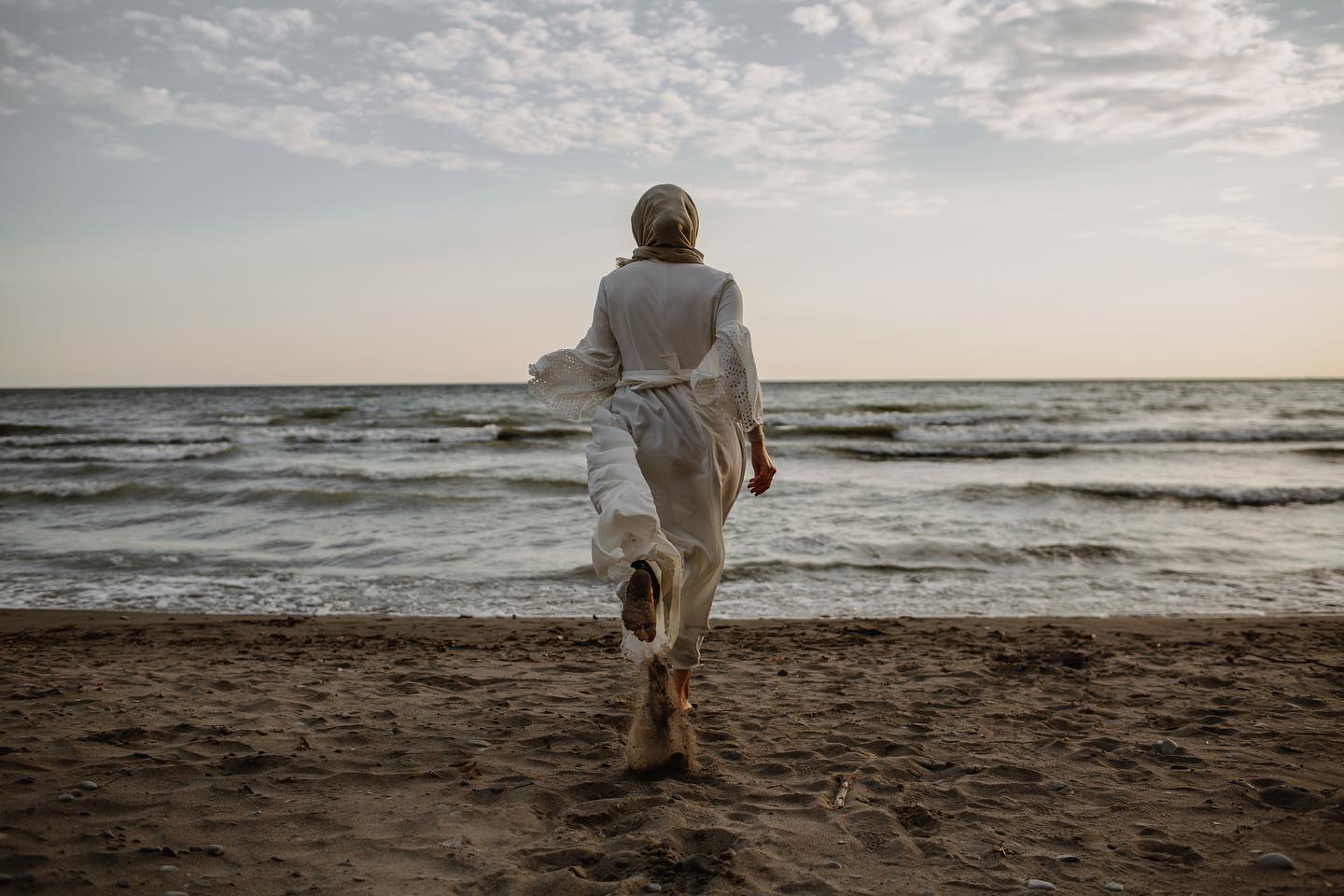
Wow, I am so sorry you went through that, but it’s so inspiring that you were able to turn something so negative into something positive by now helping others. I have heard similar experiences to yours, but unfortunately the people in these abusive relationships seem almost stuck, like they don’t know how or if they should get out. How did you finally take the initiative to leave?
You’re absolutely right that you can become stuck and you can feel like there’s no way out. But you can also feel like there’s nothing better out there, that you’re not going to have any better because you hear that all the time.
“You think you’re going to find someone who’s better than me, who’s going to be better than me to you? You think you’re going to find someone who’s going to tolerate you?” So you’re already made to feel like, “There’s nothing out there for me anyway. This is the only person who’s going to tolerate the awfulness that I am because I’m so awful.”
We also need to understand that, for a person who’s in an abusive relationship, the average attempts of leaving before they leave permanently is seven. I tried to leave three times, and they were all unsuccessful. The fourth time was the last time. But imagine, three times.
What happens when you try to leave is, even if you get over that mentality of, “I’m not stuck. I can’t do this anymore. I’m going to get myself out,” there’s this other process of abuse where the person hoovers you back in.
They suck you right back in, whether they email you, contact you through someone you know, or send you gifts to your job. They will show up at your work or at your house. They will do anything to suck you right back into that abuse cycle, and do all the things that you had been begging them to do or be for you for the months or years before you left them. And that’s a form of manipulation.
“But even when they didn’t know, I was broken. I wasn’t present. I was in a fog, in a daze. I was always in a cloud.”
They’re just doing it to put on a show and to show you that this is going to work. “I’m going to do this. I’m going to be committed to this,” and it wears off very quickly, if you can imagine. So even when you try to leave, you’re always promised something better. “Come back, I’m going to do this, I’m going to be that.”
For me, I looked around and I saw the way that my family was watching me become that shell of [my]self. My family was like, “Who are you? What is happening?”
They didn’t know the ins and outs of what was going on in the relationship. Nobody knew. I didn’t tell anybody until the very end when I left. But even when they didn’t know, I was broken. I wasn’t present. I was in a fog, in a daze. I was always in a cloud. I was never myself with my family or with anyone, and everyone noticed. Everyone was like, “What is going on?”
Not to mention, even the fact that you’re in an abusive relationship, your life becomes consumed by it. You’re on the phone in the middle of the night screaming at them and they’re screaming at you. The next day, you’re in love. Then, you’re screaming again at each other, and people around you are noticing. They can see. They can hear.
I saw how my family was watching this happen, and I was genuinely embarrassed. I was like, “This is embarrassing. I am embarrassed that I’m still in this cycle. I’m still doing this. I’m still behaving this way, and I hate myself.” I’m looking at myself and I hate it.
So that was what propelled me [to leave]. Initially, I thought it was just impacting and damaging me. But then I saw it was damaging the people around me, and I thought “No way. I can’t keep doing this.”
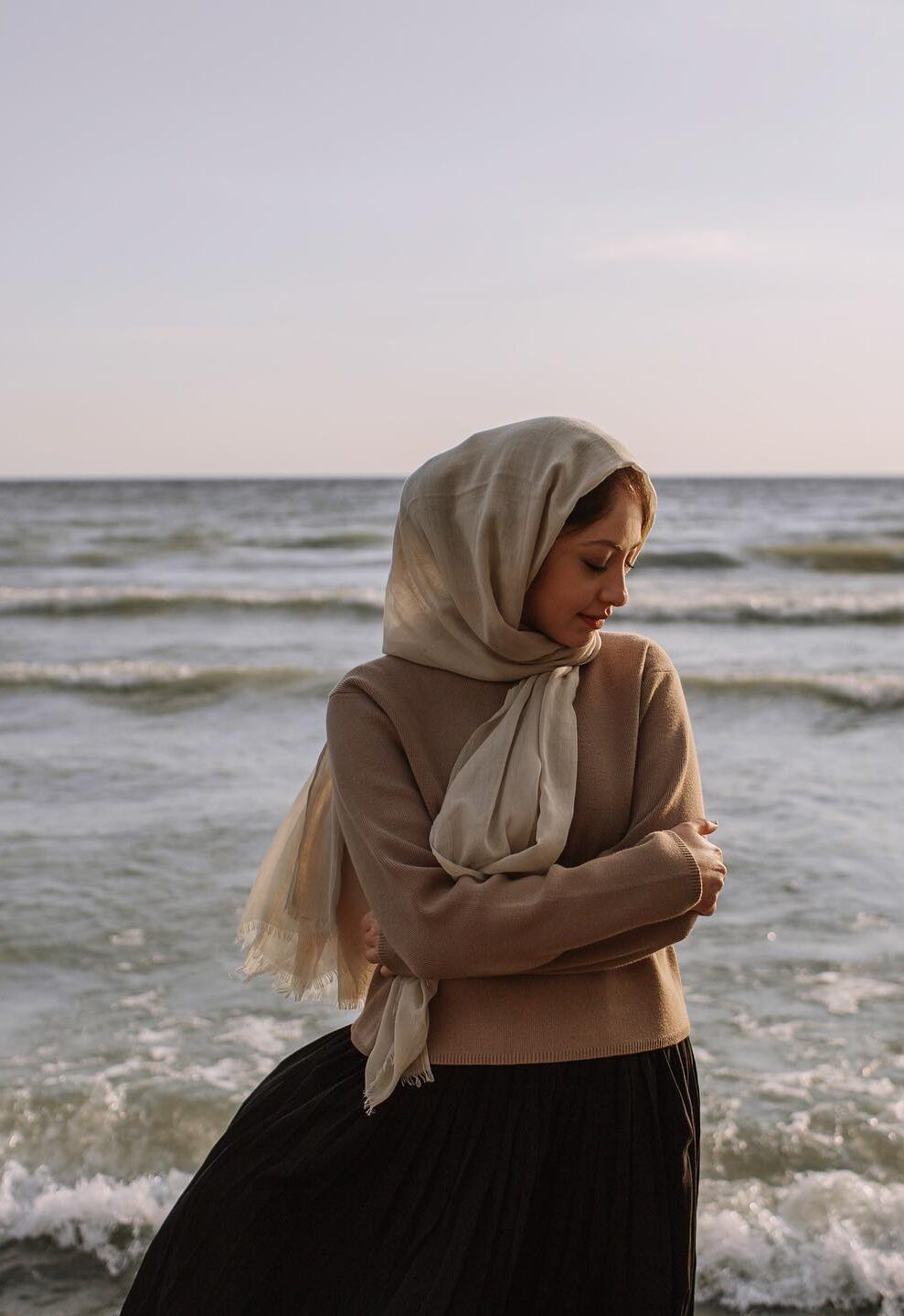
I can only imagine how hard it must have been to come to that conclusion. It’s amazing how, even though you were the one being impacted the most, you were selfless and thought about others before yourself. You talked about how much it affected you during that period of abuse, but how has your experience affected you since then, and shaped your life and who you are today?
First of all, I wouldn’t be on social media if it didn’t happen. There was never any real push for me to be creating any particular kind of content. To be fair, I probably would be on social media creating general mental health content, but I don’t know if it would be what it is now. I think it would be different, that’s all.
I feel like most of the effects I can think of are all positive. I find myself to be very understanding and empathetic when I speak to individuals who have been through domestic violence, or any form of an abusive relationship– if it’s parent-child work; someone that’s not related to them, like violence in the community; individuals who are dealing with someone who’s abusing them in their job; or, heavy trigger warning, individuals who are being trafficked.
Being in my job, in mental health, and in psychiatry, we see people from every single form of abuse that you can imagine that end up in the emergency department, in our clinics, everywhere we are, and the worst thing you could do in that situation is not be empathetic, understanding, or supportive of them in the way that they need to be supported.
“it also made me look around and realize that I was accepting a form of treatment from people that I needed to stop accepting.”
So I feel like I have so many strengths that I can pull from because of what I’ve been through, and because I experienced it myself. When I talk to my patients that have been through abuse, I find myself to be so nonjudgmental, and so able to help, advise, and support them. I don’t think I would be able to do it the way that I do it now if I hadn’t gone through what I went through.
Other than that, I’m also very able to empathize and support family members, and just be better with people, in general. In terms of other impacts, I don’t know if the abusive relationship, in particular, is impacting my relationships whether it’s friendships, familial, or otherwise anymore.
When the abusive relationship ended, I had friend relationships that were not particularly healthy. So, at the time, I was on a roll in my mental health journey where I was changing my life. I let go of a lot of friendships that I recognized were not supportive, mutually beneficial, or healthy.
I look back now and I am like, “You really were exploited. It wasn’t a healthy friendship for you.” So it also made me look around and realize that I was accepting a form of treatment from people that I needed to stop accepting.
Ever since then, the most beautiful and amazing friendships I’ve ever had in my life blossomed from the experience of learning what I’m not going to tolerate, what’s not okay, what a healthy friendship is, and what a healthy, beautiful relationship looks like. I’ve been able to manifest and create that in my friendships now, and I wouldn’t change that at all.

I’m so glad you brought that up because you can definitely have a toxic friend, but sometimes it’s harder to recognize and end that type of relationship. As I mentioned earlier, you’ve been very brave and open about your experience, and I’m sure a lot of healing internally led you to cope with it the way you’ve coped with it, and be able to talk about it so publicly. What are some of the things you did to cope and heal from your experience that you would recommend to others?
The first thing would be to see some sort of mental health professional, even if that’s a counselor, your family doctor, or if it’s talking to a trusted friend or family member–someone that you can trust with your story–because I know therapy can be financially difficult to access. So I would say somewhere where you can talk and let it out.
One of the most common things after abuse is: a lot of people will keep it all in their hearts. They won’t share what’s going on, whether it’s out of embarrassment, confusion, guilt, or shame. They have all these things that happened to them that they haven’t talked about, processed, named or understood. So you definitely need somewhere to vent.
Another way of releasing all of that pain from those experiences is to write them down. If people are not fans of journaling, that’s okay, you don’t have to do that. But if you are, start getting into that habit.
All of the epiphany moments of recognizing that, “Oh my gosh, this was abuse. And that was, too” was when I wrote them down. When I wrote down the event that happened on this day, that left me feeling like this, then I could name it. I could actually understand what it was.
“…traumatic experiences like this will test your faith at anything. They’ll test your faith in humans. They’ll test your faith in God. They’ll test your faith, period.”
Within months, I had journals filled from the beginning to end with what happened on this day, and when this was said to me. All these things that subconsciously really weigh on us, even if we don’t know they do, once you start writing, it all comes out. So that was a really helpful experience for me.
At the same time, I was doing therapy, and I was being prompted by my therapist to ask myself certain questions. She would tell me, “Think about this and write this down, or think about that, and we’ll talk about it next time.” So I had someone holding my hand and guiding me throughout the whole process.
If you’re very spiritual or religious, traumatic experiences like this will test your faith at anything. They’ll test your faith in humans. They’ll test your faith in God. They’ll test your faith, period.
If you do question things or if you do experience a dip in your faith in that time, it’s natural to feel that way because you’re questioning everything. But using faith as a tool was really helpful for me.
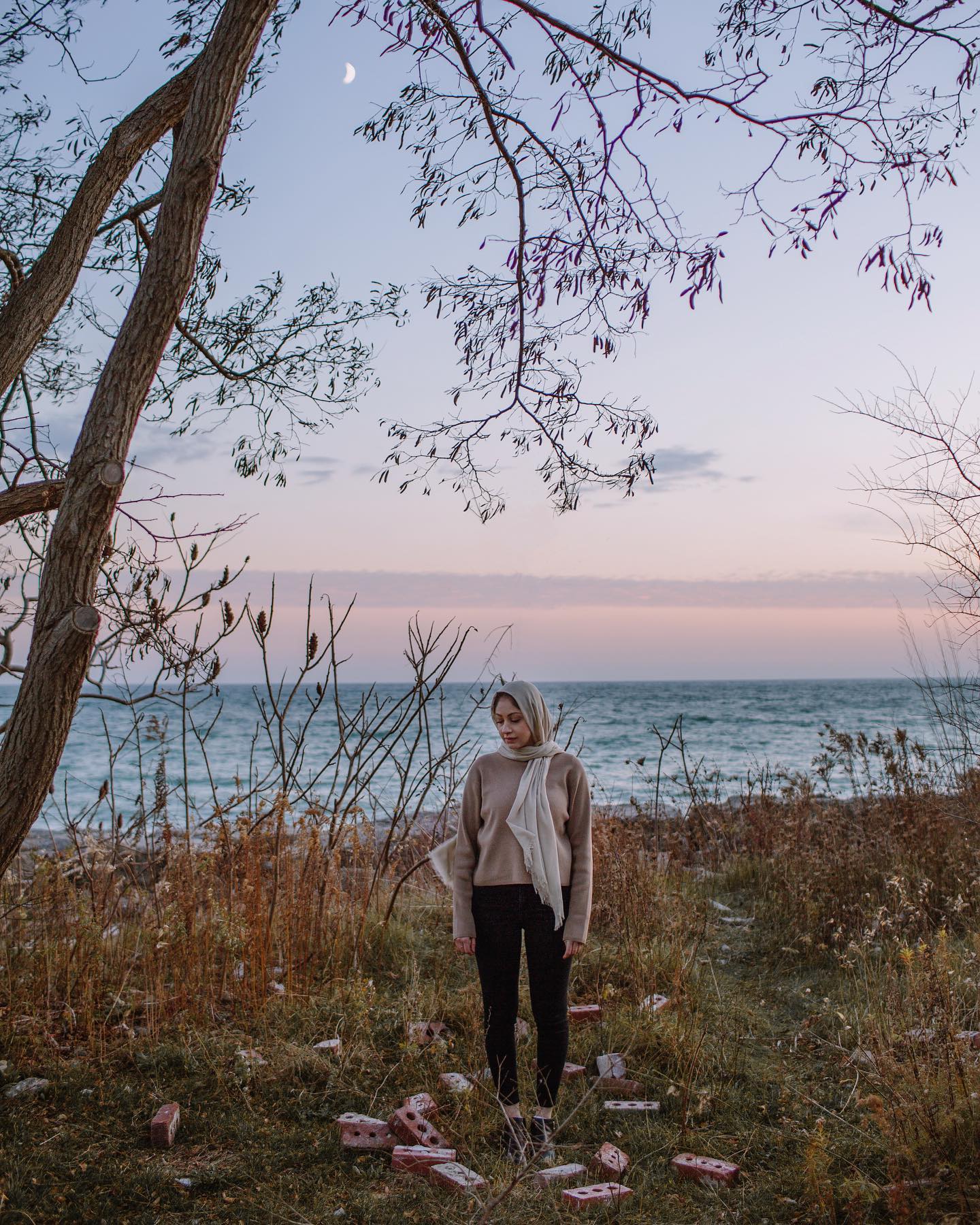
I found reading about the Prophet (SAW) was really helpful. There are these two psychologists that I follow on Instagram, and they write these papers for Yaqeen; the papers are so powerful. I think they’re all based on Surat Al-Duha, the premise of that surah, and how powerful it is when you’re going through trauma and healing. I read those papers, and that was really helpful.
Another thing that I did a lot, which I don’t always recommend unless you’re able to discern what’s helpful for you and what isn’t, is I followed a lot of accounts about abuse. I followed accounts that would provide advice about it, healing, or even people sharing their stories because I didn’t have anyone personally in my life that had gone through what I went through.
At that time, I didn’t have anyone. I felt so alone. Even though I was supported in some ways and from some people, I felt like I didn’t have anyone who could understand.
“I felt so alone. Even though I was supported in some ways and from some people, I felt like I didn’t have anyone who could understand.”
I would go online and I would see these videos and posts, and I would breathe. I was like, “I’m not the only one and I’m not crazy. I’m not crazy to have reacted that way or felt that way.”
It probably contributed to me going on social media, to be honest, because of the sheer comfort I felt from reading other people’s content. That was major in my journey.
So overall, I would say: somewhere to vent, somewhere to let it out, somewhere to process it, writing it down, using faith and spirituality as a platform that’s holding you and keeping you up, and finding comfort in not being alone. You’re not the first person to go through this, you’re not the last, and you have support.
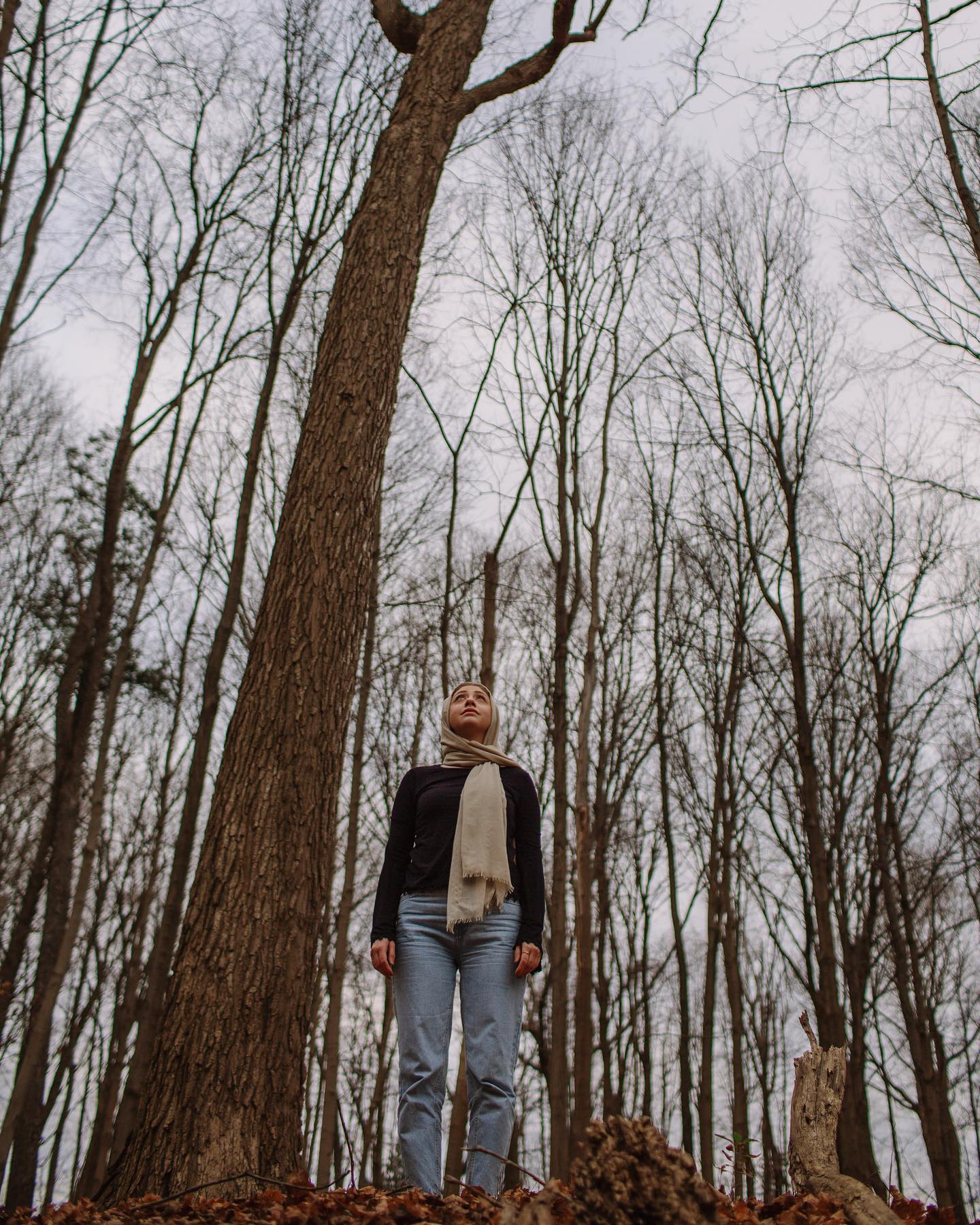
I love that advice. I think that is super helpful, especially for our community, where it isn’t as common to be talked about, and it’s harder for people to take some of those initiatives or know how to get support. What are some common stigmas surrounding abuse in our community and how can we destigmatize them and make conversations surrounding domestic violence and mental health less taboo?
The first thing that came to mind when you asked me that is the question, “What did you do? What did you do for them to get so mad? What did you do for them to behave that way? What did you do to trigger that behavior?”
The stigma for me from the get-go is victim blaming. It’s always the fault of the victim for inciting such a reaction in an abuser, especially because abusive people are often not abusive everywhere they are. In fact, not often, always. They have to in order to live in our society. You can’t be awful everywhere. You can’t sustain yourself. You can’t live like that.
Typically, they are this upstanding citizen at work, a philanthropist, religious leader, scholar, someone that’s doing something huge or good for the world, and someone that presents themselves to be very good in the world. Yet, they can be violent at home. They can be verbally and physically violent and abusive.
Another thing within the Middle Eastern, Arab Muslim community, because I’m Arab, is that I faced a lot of questions like, “Well, what did you do for them to react that way?” and “They’re so nice to me. They’re so good at their job. They seem so nice. How could they be abusive?” That doesn’t make sense to the community.
“It’s so sad to me that the safety of a human being and the value of a human life is lower than their honor, their reputation, or a piece of paper.”
It’s also the recognition that people are not one dimensional. Everyone is different at home from how they are in public. All of us have some minute differences, and walls come down when we’re home. We behave differently in the most comfortable spaces of our lives. Abusers just take it further, and they’re abusive. I don’t know why, but I guess it’s really hard for some people to fathom that someone can be nice to them and be abusive to their partner.
The other stigma is that if it’s, for example, a woman, and obviously men can be abused as well, but if it’s a woman, and she wants to end a marriage or a relationship, and the reasoning is abuse, she’s often labeled as “ruining the home.” [People are like,] “Why are you destroying a family? You have children. What about your family? What about your work reputation?” and all of that.
It’s so sad to me that the safety of a human being and the value of a human life is lower than their honor, their reputation, or a piece of paper. Marriage, at the end of the day, is you’re signing a contract on paper. How is that more valuable than this human life and potentially more human lives when children are involved?
That’s another thing that people think–that a broken home is worse than an abusive home. That, to me, makes no sense. Abusive relationships are traumatic, and that’s more broken to me than separating from someone who’s abusive.
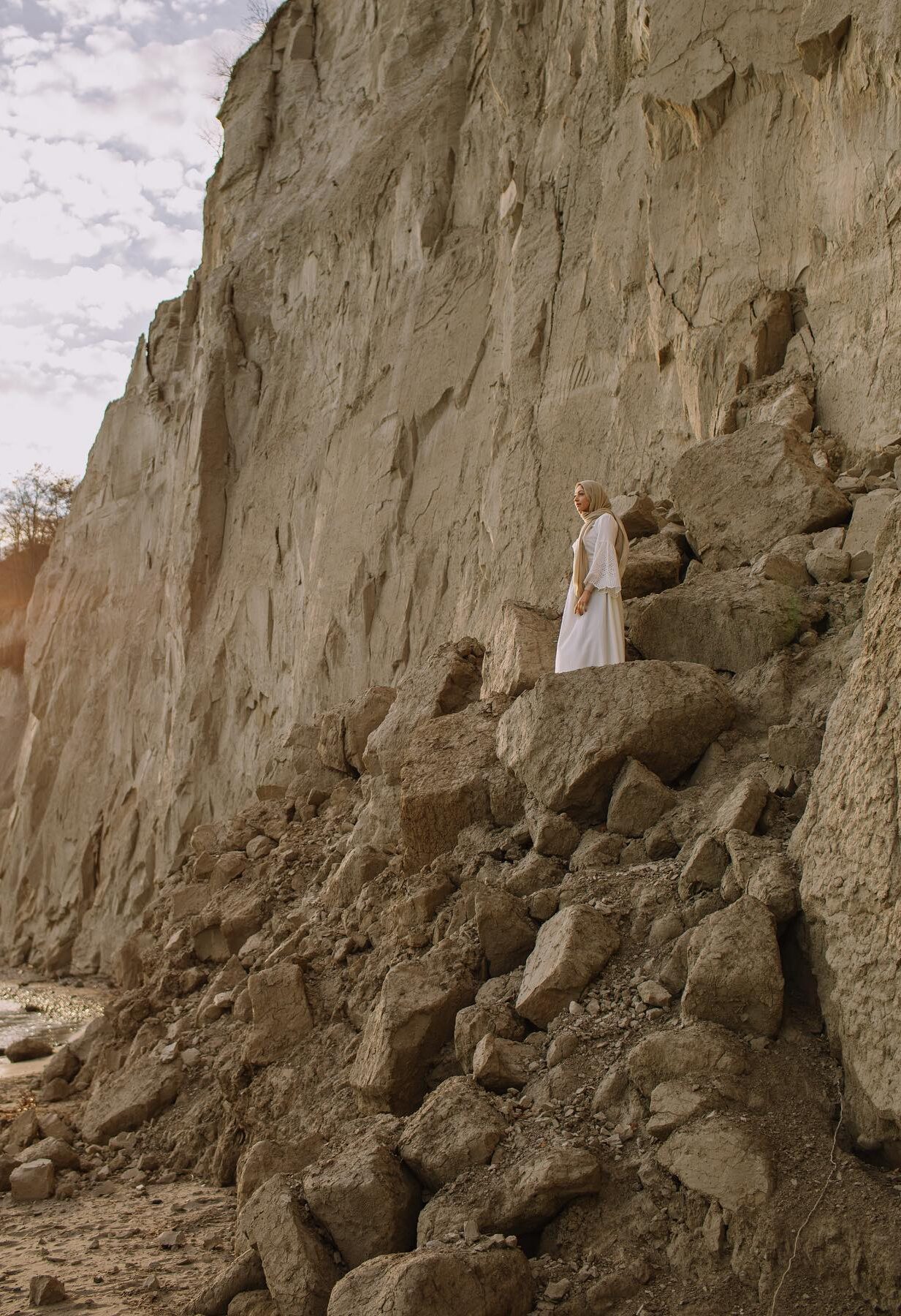
Oh yes, definitely. Another issue in our community is that it is considered wrong or shameful to even discuss your problems at home with others out of fear it will ruin the family’s reputation. So we tend to shove them under the rug, never discuss or address them, and then the issue continues, or we are in denial of it. How can we change that in our community and create safer spaces for Muslims to discuss these issues so that they can address them in their own lives in a healthy way?
That’s a tough question. How do we get people to understand the sheer volume and numbers of people who are being abused, which would equal to numbers of people who are abusive—for them to acknowledge and accept that this is so much more common than they may want to believe—without having leadership take on that role of educating people? I don’t know how we can educate them.
Certainly, social media is an avenue, but you’re not going to get older aunties and uncles on social media reading this information. They need to hear it from their imam, friends, or leader in the community. How do we get them to care about this cause and talk about it publicly? I genuinely don’t know.
Unfortunately, I find that it is a very niche thing to talk about because, most often, people who have experienced it talk about it, and the rest of the people are just like, “I don’t know what you’re talking about. This isn’t a problem. It doesn’t exist. I want to stay ignorant. I don’t want to know what’s going on.”
So half the community is individuals who’ve gone through abuse, and the other half is people who are trying to shut it away like it doesn’t exist. How do we get them to understand that we need each other?
I think leadership needs to be involved. I think imams have to talk about domestic violence. I think lectures in our mosques and in our Friday prayers need to be about domestic violence. We have to talk about abuse. We should normalize the words in our spaces because, otherwise, we’re not going to talk about it at all. So, I would start there.
“Don’t repeat those generational cycles. Cut that now and be very intentional about how you raise your children.”
All of us have the power to influence our children, and should think about, “How do I want my children to grow up to be? What do I want for them in the future? How can I make them be gentle, caring, honest, good partners, and good people in this world? This is more of the bottom-up approach.
We have a lot of control over how people end up, as parents. So parents, if you’re reading this, if you know someone who has been abused, or if you have been abused, you have the power to raise a whole human to be a good partner, to be a good person.
I think we should take that way more seriously. We have seen in our parents, families, and upbringings, that it very much does create a culture of allowing, especially men in the families, to be controlling, to get away with whatever they want, to have no accountability, which is major. If you grew up with no accountability, it makes it very easy for you to abuse people because you can do whatever you want. There is no consequence or accountability.
When I look at my own parents and their generation, and how they raised children, it makes perfect sense why we have a large number of people being abused because we’re raising people to navigate the world thinking that the world is their oyster. They can take whatever they want from it, and they will have no accountability for their actions, or they think they’re better than others, and things like that.
Don’t repeat those generational cycles. Cut that now and be very intentional about how you raise your children. It starts in the house more than anywhere.
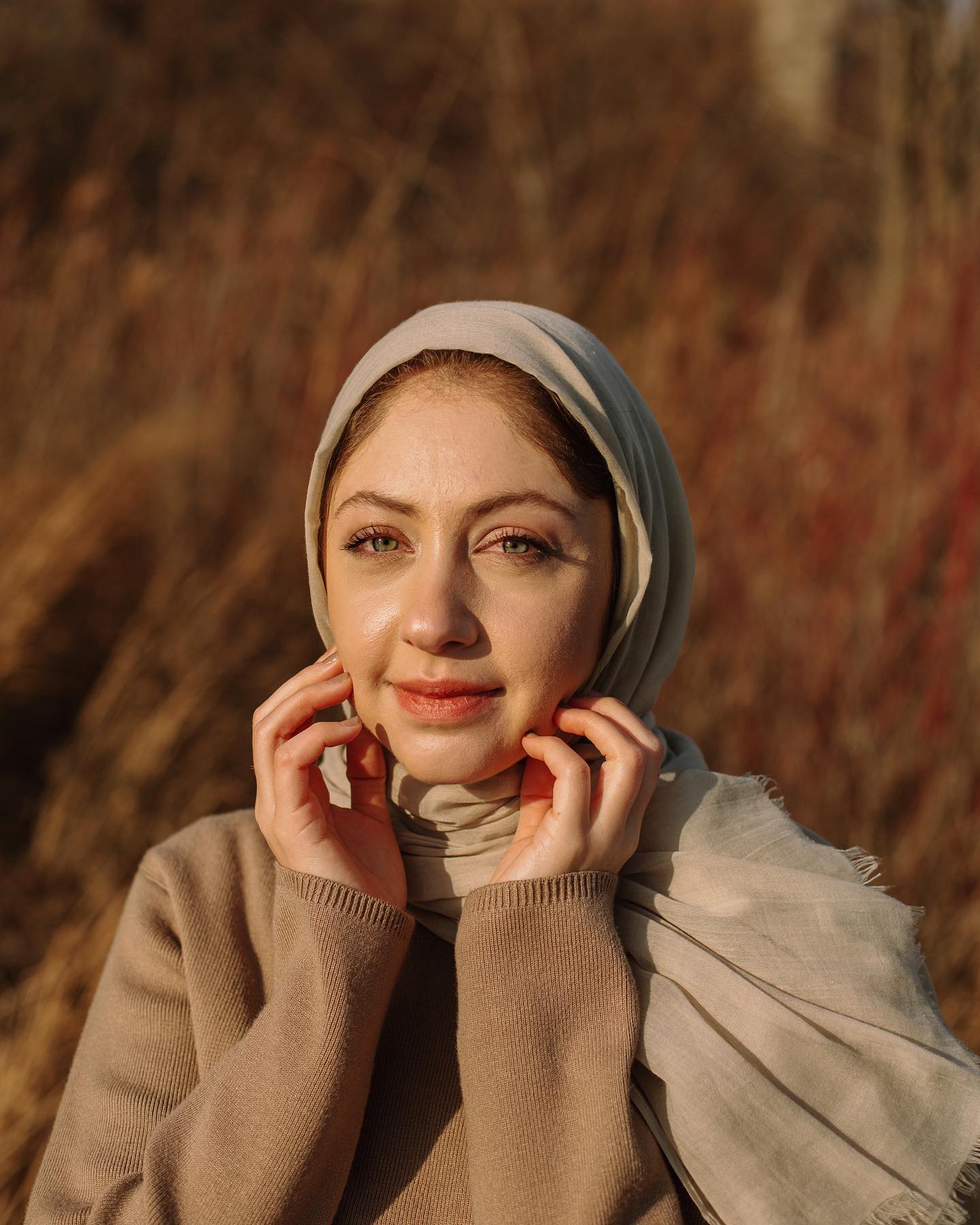
It is so important for these issues to be discussed by our imams in our mosques. I also agree that it starts at home, but I think the issue there is when people become so accustomed to something, they may not even realize there is a problem or be compelled to change it.
100% I think you’re right, that it is a lot about what individuals will tolerate, too. So whatever they see in their home, that they accept as normal, familiar, right, and comfortable, they will allow in their relationships. So on the same token, it’s also not raising your kids to tolerate that.
Exactly. I hope that with more and more Muslims being in this space and talking about it, that our generation will be able to break that cycle. Another barrier for Muslims in seeking professional help, that you mentioned before, is the challenge in finding the right therapist. How can Muslims navigate through that?
There are a few websites that I’ve actually posted on my Instagram that you can go on to search for a Muslim therapist. There are even South Asian therapy websites as well, where you can find someone from a particular culture.
Because of the number of therapists that are available on the website, I use psychology today. It’s a website that you can use in America, Canada, all of the West, essentially, where you can look in your area for therapists, and even filter for therapists that are Muslim, for example, are women, are trauma-informed, or whatever it is. I like the platform because it has such a large database of people, and also because you can filter for what you want.
“We all deserve a therapist that we can really trust and that can really support us.”
I always recommend to people that, if they can’t find what they want in their area, to search wider because therapy can be offered virtually. You can do it over video conference or phone call, so definitely expand and reach out. COVID allowed us to offer care virtually, when before, we used to be too afraid about confidentiality and all of that, and then with COVID, we had to adapt. So that’s kind of a good thing.
In my experience, when I was looking for therapists, I called three or four people, so I had a short list. I wanted to find a woman. I wanted her to be Muslim. That was my criteria. I made a short list and I called all of them. The one that I felt most comfortable talking to on the phone for that 20-minute free consultation to get to know each other, and ask each other questions, I went with her.
Also, it’s really important to navigate what you can afford. So when you make a shortlist and find who you would be willing to talk to, filter through them about money, too, because you’re paying for the service out of pocket, unless you have insurance.
Be selective. Be picky. Be honest about what you can afford. The point is— you have options, so don’t limit yourself to where you live. Look outwards, open up those options, and also be selective because you deserve that. We all deserve a therapist that we can really trust and that can really support us.
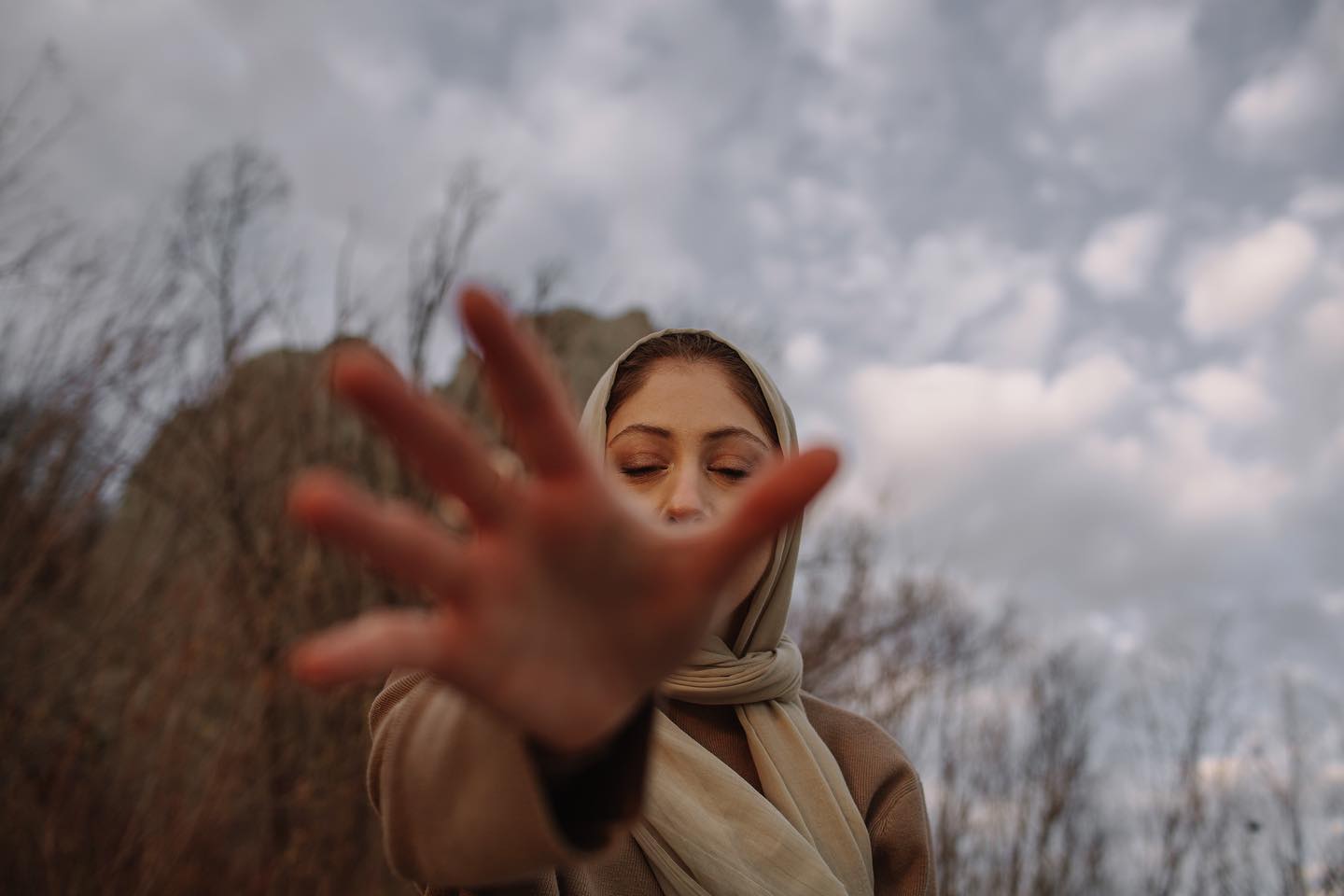
Definitely, I think having a therapist that doesn’t understand or that makes you have to defend who you are could add to your to your trauma and to the mental health issues that you’re facing. You don’t want to be going into therapy and coming out of it feeling worse. You mentioned before that it can be hard to recognize abuse in general, but especially in an environment where it’s normalized. So what are some common warning signs of abuse that you think people should know about?
The most common sign of abuse is when you go from extremes: extreme highs to extreme lows, and nothing is ever peaceful or calm. You’re always on ground that’s unsteady and shaking. I think that’s probably the most prominent thing that I would hear from people who go through abuse, and I went through it myself.
There’s never stability. You’re always waiting for the next shift. So you’re ready to go up or down, and of course, you don’t want to become accustomed to that. In order to desensitize yourself to that, you become numb. You become almost nonreactive, like nothing fazes you anymore.
Part of that also includes running on autopilot, not being present, always being in a daze, and disconnecting from your world because your world is so turbulent and so painful. That turbulence and unsteadiness also results in you becoming this version of yourself that is not you anymore.
“It’s taking all the beautiful things you are, all your qualities, all your personality, and just continuously chipping away at what makes you the beautiful person you are.”
We talked about this already, but the shell of yourself is very real. It’s taking all the beautiful things you are, all your qualities, all your personality, and just continuously chipping away at what makes you the beautiful person you are.
So I touched on three things there. The first thing was that unsteadiness, that turbulence. Subsequently, it’s the detaching, the numbness, the disconnect from your reality, and you’re just in a daze. The third thing is losing who you are, and part of that also includes questioning it, too.
When I was in my relationship, I remember always being told that I’m a really good communicator, especially in medical school. Even if I did badly on an assessment, I’d be told, “You communicated really well.” So, I was like, “You know what, at least I have that. I can articulate my thoughts well, and I can really explain myself.”
Even in my relationship, which was abusive, I would question that and be like, “Am I not able to explain myself anymore? Am I losing this capacity? Was it all a lie? Because I’m explaining myself so well, I’m trying so hard to articulate my feelings, and I’m being gaslit. I’m being told that I’m wrong, I’m silly, I’m overreacting, or I’m not clear in what I’m trying to say like I’m not making any sense.”
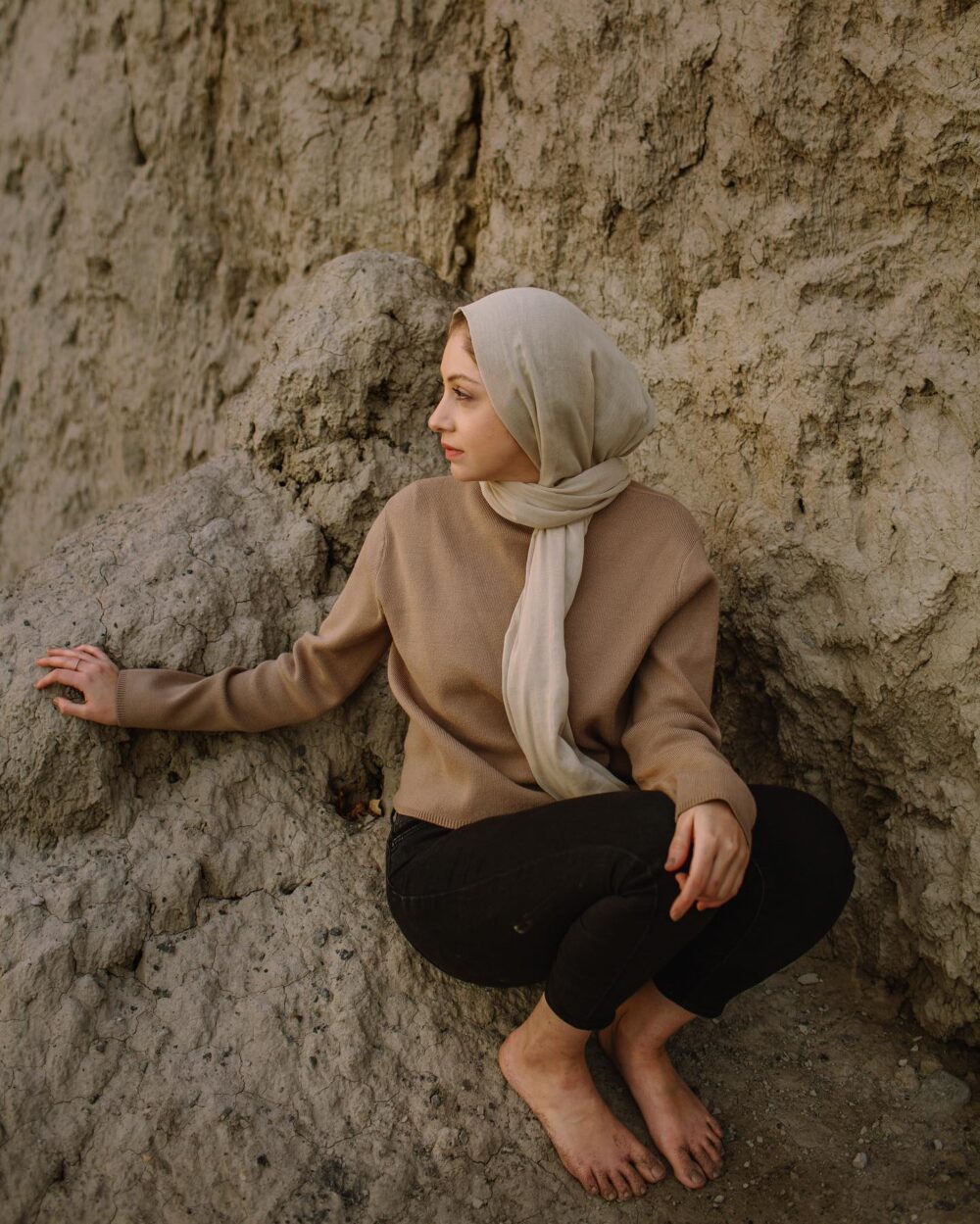
So then I would question this thing that was part of my identity, this core part of me, which was that I’m a communicator. That’s how deep and insidious abuse is. You question who you are, and you start to lose that luster, that specialness about you. It’s gone. You often don’t notice it until much later in the relationship, but that’s a huge sign.
More things that are common, even in non-abusive relationships, are people will gaslight each other in friendships and things like that. Gaslighting is huge.
In an abusive relationship, you will very commonly go through the cycle of, “I don’t know what you’re talking about. That didn’t happen, but if it did happen, it was your fault. You were asking for it. I’m not sorry, you deserved it.”
You go through this period of gaslighting and constantly hearing these things on repeat, and feeling like you are the source of every problem in the relationship. You are a problem, it’s all your fault. So if you’re noticing that repeatedly in your relationship, definitely sit back and reflect on that.
“In order to keep you vulnerable, in order to keep you in the relationship, abusers will isolate you from your friends and your social group, your job, schooling, and your family.”
Abuse has other very common themes–this could be a very long list–of isolation, too. In order to keep you vulnerable, in order to keep you in the relationship, abusers will isolate you from your friends and your social group, your job, schooling, and your family.
Every environment that you used to be a very bubbly social butterfly in, they will keep you away from, and they’ll even make you question those people. They’ll make you question your coworkers, your friends, or your family, and say things to you that will make you question whether or not they’re good to you, they’re good for you, or they’re good people. But again, it’s very insidious.
So you will start to think that it’s your choice that you’re not seeing your family, friends, or coworkers because you were manipulated into believing certain things. You’ll honestly think, “I don’t want to see my family. They’re not good to me, even though you’ve never had any reason to believe that.
You’ve just had somebody that’s been manipulating you for months and years on end to make you believe that it’s you that’s making this choice and disconnecting. So, isolation is a huge part of abuse.
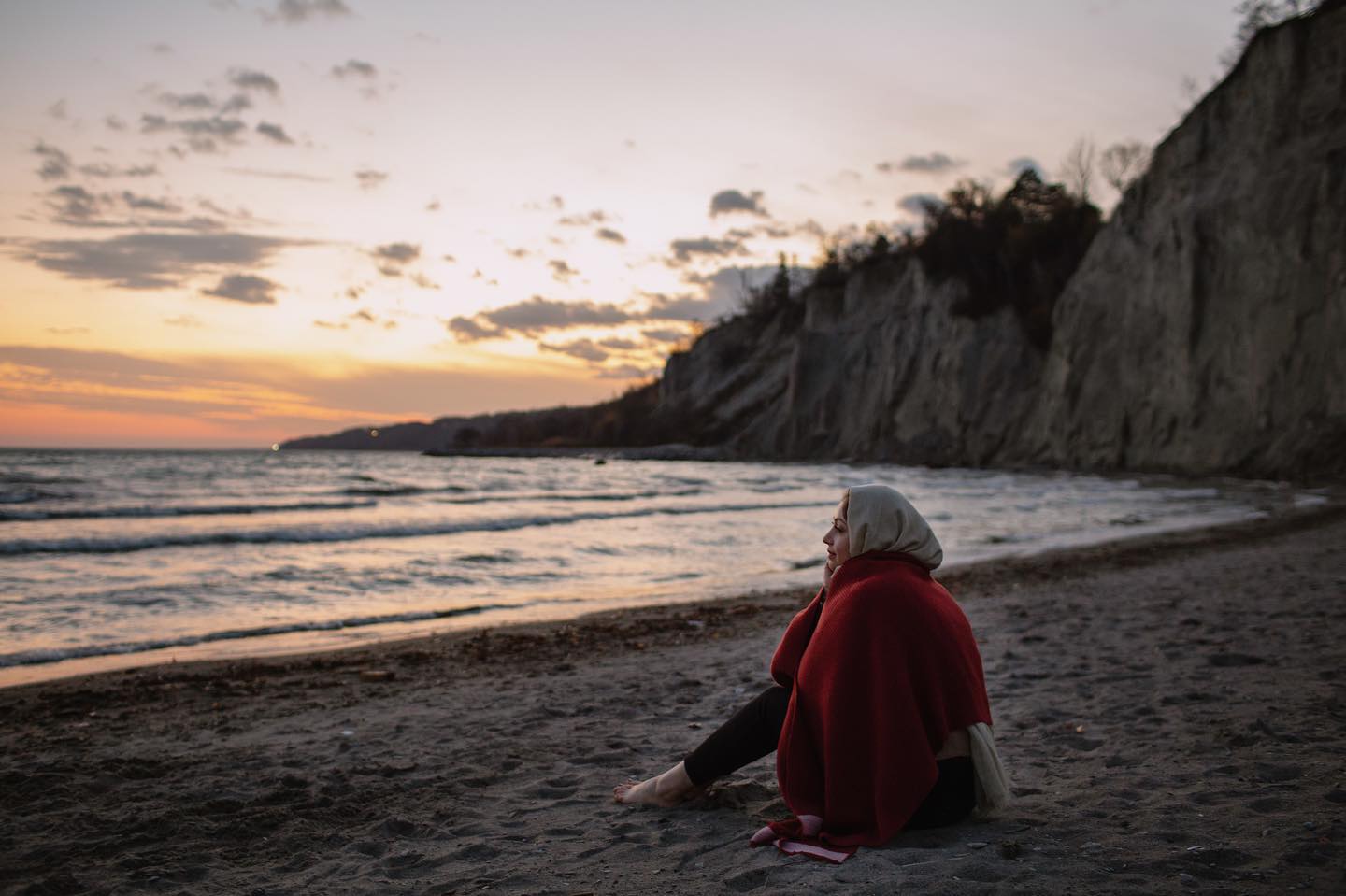
Plus, like you said, these relationships are consuming. So when it’s that draining, you don’t have the energy to give to anything else.
That’s major. That’s actually probably the very first isolation. Before you even start to intentionally not hang out with your family, friends, or colleagues, you disconnect because you’re exhausted. You cannot give anything else of yourself because you’re giving everything to this abusive relationship.
It’s such a traumatic thing to go through that your quality of life deters so quickly over the course of it. In the discussion of abuse, you often hear about the abuser and the abused, but what about those who witness someone they love being abused, or are confided in by a victim of abuse, who feel helpless in the situation–they don’t want their loved one to continue to suffer, but they don’t know how to get them out of the situation, or they are worried about overstepping and pushing their loved one away. What can we say to them and how can we help them heal from their trauma?
If you’re a friend that’s feeling like it’s not your place, or it’s way above you, like you have no idea where to begin or how to approach this, I think that anyone who’s going through abuse just wants consistency and to feel reassured that someone’s going to stick around.
Even if you can’t vocalize to them, “You’re being abused,” or suggest that they leave because you feel that it might not be your place to suggest those things, just make it so clear to them that, “I’m not going anywhere. Whatever it is that’s going on, you know that I’m not going to judge you, right? You can talk to me about it.”
So give them the safe space and open up that conversation, but not in a pressuring way like, “You have to do this or we’re not going to be friends anymore.” But in a way that’s like, “No matter what, I’m still going to love you. I’m still going to see you the same, and I’m not going to judge you.” Be very clear like, “I need you to know that nothing is going to change here.”
“Most of the time, people go back…It doesn’t mean that you’re a bad friend if they went back. It’s just the cycle.”
Once they feel that safety, I think almost anyone would open up about their life at that point, and you can start to support them. The continued expression of, “I’m going to be here. I’m not going anywhere” is very important because, for the victim of abuse, they’re so enmeshed with this person, that when they ever decide to leave, and hopefully they are thinking about it, they will feel like a part of them is gone.
They will feel like the one person, the one thing they had is going to be gone. It’s such an enmeshed and dependent relationship that, if you can imagine, it’s like losing an organ, a limb. So they do need some sort of consistency, something they can rely on when they’re alone.
Most of the time, people go back. I always tell people that are friends or family with the victim, it doesn’t mean that they’re being stupid or they don’t know what they’re doing. It doesn’t mean that you’re a bad friend if they went back. It’s just the cycle. It’s like addiction. We know that, in the cycle of addiction, there’s relapse. It’s part of it.
So it’s understanding that it’s going to happen, accepting it, and not losing faith in the person, not losing faith in your ability to support them. You’re not deficient. It’s not your fault that they went back. It’s just part of the cycle.
If you don’t know something, don’t pretend to know. Don’t act like you know how to file a police report, or how to get them the right medical care. If you don’t know, ask. If you don’t know, take them to a doctor. If you don’t know, go with them to the police station.
Don’t pretend like you can do these things because if you don’t do it properly, there are lives at risk. Violence and abuse are no joke. People lose their lives from domestic violence every day. So, don’t pretend to know things. Ask questions. Ask for help.

Thank you for sharing that, that’s very helpful advice. In light of this month being Domestic Violence Awareness Month, what is one thing you would like more people to be aware of?
I would like them to be aware of how many people die from a domestic partner. I wish everyone knew the stats: How many people go to an authority figure like a police officer, leader, religious leader, doctor, and get gaslit, get sent back home, get denied care, get denied support, and how many of those victims will end up dead.
They would have expressed how much they tried to get support and how much they tried to seek help, and they were denied. And how hard it is for a domestic violence victim or abuse victim to just find housing, shelter, somewhere to go to sleep, so they don’t have to sleep in the same place as their abuser and be abused.
I wish people knew how it’s most often someone that is very close to the individual–their parents, uncle, partner, sibling–that abusers are not [always] strangers. These are blood relatives. These are people living in their own home. These are the closest people to you. Those are the people that are most often the perpetrators of violence and abuse.
“I wish people knew how the trauma from those experiences, even if you were so young you can’t remember, never leaves you. It never leaves your body.”
I wish people knew how the trauma from those experiences, even if you were so young you can’t remember, never leaves you. It never leaves your body. It never leaves your nervous system even if you can’t remember. I wish people knew that.
It’s unfortunate how many times I will meet patients and individuals who will say, “I experienced so and so when I was four or five, and I told my family. I told my parent, I told my father, I told somebody, and they told me it was all in my head, that doesn’t happen, that person could never do that to you, or you don’t know what you’re talking about.”
And that was their very first experience of violence. They continue to accept violence, are in abusive relationships, abusive marriages, and are abused for the rest of their lives.
So you’re setting up your loved ones for a life of abuse when you treat them that way, and when you discount abuse as a child. Even if it never happens again, if they’re only abused as a child, that alone will have the long-lasting, horrifying impacts that never leave you.
At the same time, when it does happen as a child and you dismiss it and you don’t support the child, tell them what’s wrong, or educate them on what abuse is, what their rights are, and what is okay and isn’t okay, for the rest of their life, they’re going to accept abuse because it’s normal, acceptable, familiar, and in fact, comfortable. So I wish people knew all of that.

Wow that’s really impactful, and puts into perspective just how serious any level of abuse is. It is so important for more people to be more aware of that. In addition to that, what advice do you have for victims and survivors of abuse?
This isn’t it for you. There’s so much more for you. This is not where it ends. You don’t deserve this. You are so capable of a healthy love and a healthy relationship, and so deserving of it.
Give yourself that chance. Leave the relationship if you haven’t left and you haven’t gotten out of it. That is you giving yourself the chance. You deserve that.
If you have left it, I’m super proud of you, and it only gets better from that point. The best is certainly yet to come for those individuals who leave.
All the good [qualities] that abuse takes away from them, they are those things, and they can become a better version of that. After they’ve gone through something as traumatic as abuse, they can grow from what they went through.
Be sure to follow Dr. Nahla on Instagram and TikTok for more information, tips, and advice on mental health and abuse!
Could you relate to Dr. Nahla’s story? Let us know in the comments below!


Fantastic site Lots of helpful information here I am sending it to some friends ans additionally sharing in delicious And of course thanks for your effort
xvideos.gold, just hd videos, free premium xvideos red
Magnificent beat I would like to apprentice while you amend your site how can i subscribe for a blog web site The account helped me a acceptable deal I had been a little bit acquainted of this your broadcast offered bright clear idea
Your blog is a constant source of inspiration for me. Your passion for your subject matter is palpable, and it’s clear that you pour your heart and soul into every post. Keep up the incredible work!
Temp Mail I like the efforts you have put in this, regards for all the great content.
hello there and thank you for your info – I have
definitely picked up anything new from right here. I did however expertise some technical
points using this site, since I experienced to reload the web site many
times previous to I could get it to load properly.
I had been wondering if your hosting is OK?
Not that I’m complaining, but slow loading instances times will very frequently affect your placement in google and can damage your high-quality score if advertising and marketing with Adwords.
Anyway I’m adding this RSS to my e-mail and can look out for a lot more of your respective
fascinating content. Make sure you update this again very soon.
What i dont understood is in reality how youre now not really a lot more smartlyfavored than you might be now Youre very intelligent You understand therefore significantly in terms of this topic produced me personally believe it from a lot of numerous angles Its like women and men are not interested except it is one thing to accomplish with Woman gaga Your own stuffs outstanding Always care for it up
You have done an excellent job with this post; it is both interesting and useful.